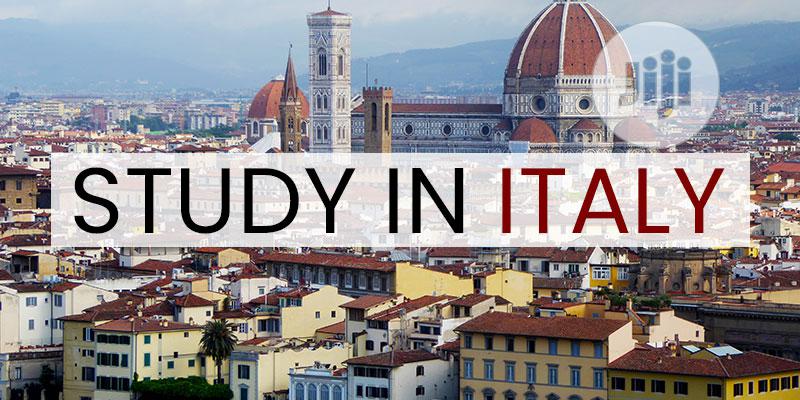Change in language, culture, changes our thoughts and perceptions. The most wonderful takeaway from studying overseas is the added experience and understanding that one learns. Students all across the globe are attracted to this land of Archaeological monuments and the birthplace of Pizzas and Pasta. Higher education in Italy is similar to that in India with a three-four year Undergraduate Degree and a two year Masters Degree. Post-graduation studies vary with each university.
Why Italy?
Three Italian Universities rank in the top 200 universities of the world as ranked by QS 2021, and around 10 Universities are ranked in the top 500 universities of the world. Italy is a great place for students keen on exploring European and Roman art and history. Out of all the famous things of Italy, their art and architecture, food, culture, and the innumerous fashion brands top the list, thus bringing in a lot of international students to Study in Italy.
The Top Universities of Italy Include
- Polytechnic University of Milan, ranks 6th in design, and 9th in certain fields of Engineering
- University of Bologna; one of the oldest universities, ranks 1st in Italy for academic reputation.
- University of Rome- La Sapienza ranks 1st in the world for classics and ancient literature.
Other reputed universities include the universities of Pisa, Padua, Milan, and Florence.
The Pros and Cons
- Free education and scholarships for students scoring above the set cut-off, and eligible for the set criteria.
- The tuition course fees and accommodation expenses are average, and the essentials are in an affordable price range.
- Scare job opportunities, and most jobs in Italy require fluency in Italian, thus also cutting down part-time job options.
- The residence permit processes are tedious, so are the bureaucracy related procedures.
Plans and Preparation
• The cuisine and dinner timings are quite different. So, prepare a small set of Kitchen essentials like an induction cooker, pan, a few vessels, and a box full of Indian masalas and learn to cook, so that your daily meals are taken care of.
• Select the Universities carefully. Most of them provide scholarships but read up about the faculty, the rules, examinations and the credibility of courses.
• Do not choose a course and university merely because it is cheap.
• It is best to learn basic communication level Italian, or deeper if interested, as this will make more part-time job opportunities available and make communication easier.
• If renting out places, enquire about the lease, and make plans accordingly.
• For details about the document requirements for Visa application, test preparation and others, seek guidance from a consultancy.
Study Overseas Help
This study abroad consultancy guides students for education in Italy. They provide counselling to choose courses and universities and help with the admission process. Getting the documents ready, preparing for language entrance tests, applying for the Visa, are all covered up under their guidance.
Assistance in applying for student loans and scholarships is also provided along with information regarding the cost of living and expenses. Visit their webpage and find details regarding the cities and universities of Italy, documents required for Visa application and much more. Read up right away!

